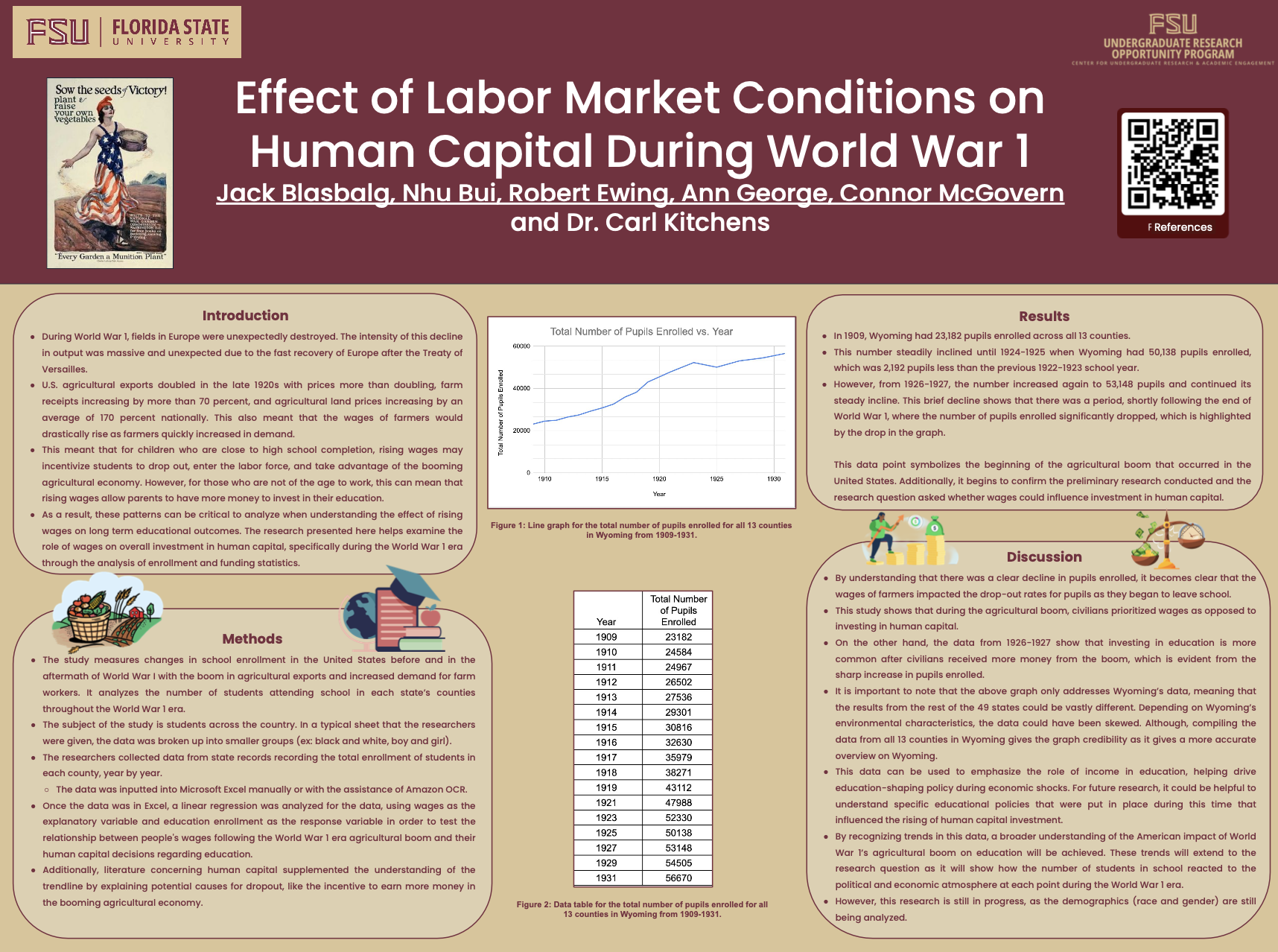Research Symposium
25th annual Undergraduate Research Symposium, April 1, 2025
Nhu Bui Poster Session 3: 1:45 pm - 2:45 pm/ Poster #30

BIO
Hi, my name is Nhu, and I'm from Hanoi, Vietnam. I'm currently pursuing a double major in Accounting and Finance. My research focuses on how labor market conditions, particularly wage fluctuations during the World War I agricultural boom, influenced human capital investment and student enrollment trends. Analyzing historical data, I explore the economic factors that drive education decisions.
Beyond research, I’m passionate about financial markets and economic policy. I aim to apply my analytical skills in consulting or investment banking, where I can work on complex financial challenges and develop strategic solutions. With a strong foundation in finance and a global perspective, I’m eager to make an impact in the industry.
Effect of Labor Market Conditions on Human Capital During World War 1
Authors: Nhu Bui, Carl KitchensStudent Major: Accounting and Finance
Mentor: Carl Kitchens
Mentor's Department: Department of Economics Mentor's College: Florida State University Co-Presenters: Jack Blasbalg, Robert Ewing, Ann George, Connor McGovern
Abstract
This investigation explores how labor market conditions during World War 1 influenced long-term educational outcomes. The relationship between rising wages and human capital investment was examined across a variety of youth age groups. This research was conducted by transcribing data from historical publications into Microsoft Excel, either manually or with the assistance of OCR, analyzing this retrospective data, and supplementing this understanding through further review of human capital literature. Additionally, data analysis was conducted through a linear regression test to assess the relationship between wages and human capital decisions. Preliminary results indicate that World War 1’s agricultural boom led to distinct effects on various age groups of students. For older children, meaning those nearing high school completion, this boom incentivized entry into the labor force due to immediate earnings. However, for younger children just beginning school, higher wages facilitated a rise in educational investment due to increased income within parents. The preliminary results of this study suggest that older students prioritized immediate earnings over investment, whereas educational investment was more attainable with younger children due to household income increases. This research can provide insights as to how the labor market can influence educational and societal issues on a level that is relevant today. By emphasizing the role of income in education, this can influence how policy develops to encourage the rise of human capital investment.
Keywords: Labor Markets, Human Capital, WWI, Education Economics, Wages

